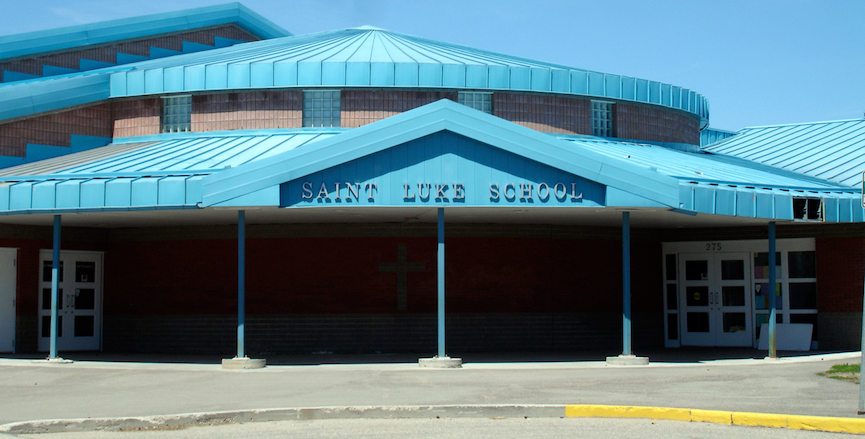You’d think the province of Saskatchewan would be almost out of time to figure out how to deal with a judge’s ruling last year that non-Catholic students may not receive public funding if they attend separate schools.
After all, the bombshell decision by Justice Donald Layh of the Saskatchewan Court of Queen’s Bench back in April 2017 gave the Saskatchewan government only until June 30, 2018, to solve the problem his decision handed them. That’s now less than two weeks away.
But while no court has overturned the Justice Layh’s ruling, CBC reported Saturday the Saskatchewan Court of Appeal has approved an application by the defendant in the original case, the Yorkton-area Catholic school board that is now one of the appellants, to extend the deadline.
The case has been grinding its way through the courts since 2005, when the public the Good Spirit School Division sued the Christ the Teacher Roman Catholic Separate School Division for opening an elementary school two years earlier in the Village of Theodore, putting the future of a small public elementary school at risk when some non-Catholic students transferred.
The public school division argued that the protection of Catholic schools in Saskatchewan (and Alberta and some other provinces) that was grandfathered into the Canadian Constitution in 1982 didn’t include the right for Catholic schools to receive public funding for non-Catholic students.
When Justice Layh agreed a dozen years later, well, the stuff kind of hit the fan! This should come as no surprise, as Catholic schools in Saskatchewan and several other provinces, most certainly including Alberta, depend on non-Catholic students and the funding that comes with them to stay in business.
Justice Layh’s 2017 ruling has been followed by several developments. In May 2017, the Saskatchewan government sought leave to appeal the ruling. Later that month, the provincial government introduced legislation invoking the Notwithstanding Clause of the Canadian Constitution in an effort to wipe out the court’s decision. (The Notwithstanding Clause allows provincial legislatures to override certain portions of the Charter.) The so-called School Choice Protection Act was passed by the end of the month and given Royal Assent. However, it has not yet been enacted, pending the outcome of appeals.
Using Section 33 of the Canadian Charter of Rights and Freedoms to override an inconvenient court ruling — long a go-to solution for Saskatchewan politicians — may not be 100-per-cent effective in this situation, however, despite the way the story has been reported.
As noted in this space in May last year, using the Notwithstanding Clause may not be a definitive solution to the governing Saskatchewan Party’s political problem because Justice Layh’s decision rests on more than just the fundamental rights set out in the Charter.
As prominent Edmonton lawyer Simon Renouf observed at the time, “I very much doubt that the Saskatchewan government can use the Notwithstanding Clause to save its scheme of public funding for non-Catholic students to attend Catholic schools as the court also found that this funding offends section 17(2) of the Saskatchewan Act, which amends s. 93 of the Constitution Act, 1867, to allow for funded Catholic schools, for Catholics.”
“The Notwithstanding Clause could not affect this finding, as it applies only to certain sections of the Charter, and not to the Saskatchewan Act,” Renouf explained. The Notwithstanding Clause is powerless against provisions in the 1905 Saskatchewan Act, which since 1982 has been entrenched in Canada’s Constitution and subject to its more complicated amendment mechanisms.
Renouf observed that the Saskatchewan Party government of then premier Brad Wall had already argued in court that it was forced to provide per-student funding under the terms set out in the Saskatchewan Act and the judge ruled the opposite. So, he asked, is it possible in those circumstances for either the Saskatchewan government or the Parliament of Canada turn around and pass a law requiring a province to fund non-Catholic students attending a Catholic school?
In January this year, Justice Layh ordered the Catholic School Division to pay close to a million dollars in legal fees and costs to the public school division. The Saskatchewan government was also ordered to make a payment. In February, Christ the Teacher Catholic School Division and the Saskatchewan government also sought leave to appeal that ruling.
That seems to be where things stand at the moment. No one should expect this situation to be resolved by June 30, or for that matter when classes resume in September.
Given the political clout of the Catholic Church, many politicians of all stripes throughout the Prairies and in Ontario doubtless wish this could just go away. Alas for them, it’s not going to.
This post also appears on David Climenhaga’s blog, AlbertaPolitics.ca.
Image: Daryl_mitchell/Flickr
Like this article? rabble is reader-supported journalism.




